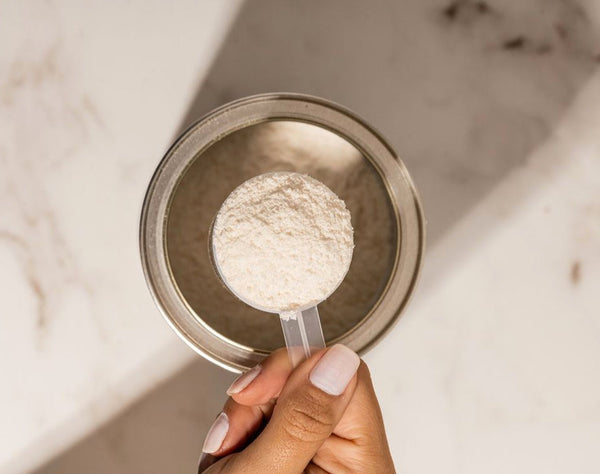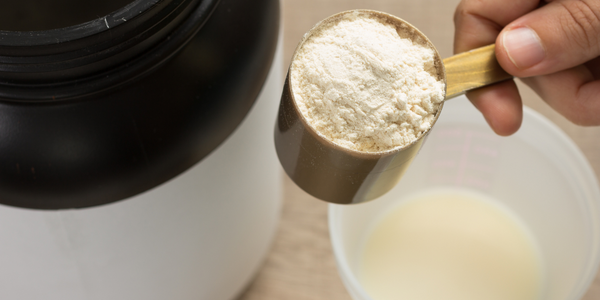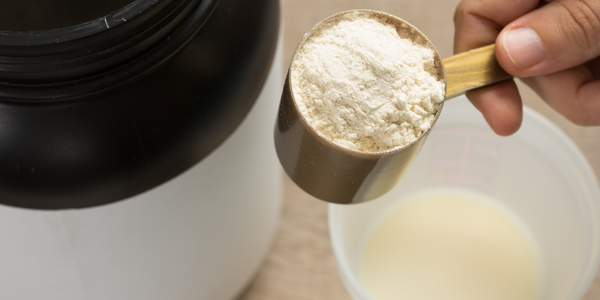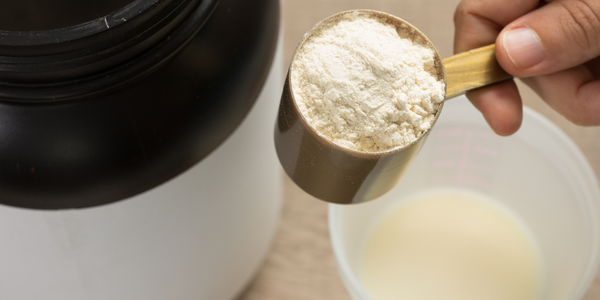With so many options available on the market, choosing the right protein powder can be overwhelming. Whether you are new to fitness or a seasoned athlete, selecting the right protein supplement is crucial to achieving your goals.
Today, we’ll guide you through the process of choosing the best protein powder for your needs.
What Is Protein Powder and Why Is It Important?
Protein powder is a convenient and efficient way to supplement your diet with protein, particularly for those with increased protein needs due to physical activity, muscle recovery, or weight management. It provides a quick and easily digestible source of protein, supporting muscle repair, boosting metabolism, and maintaining lean muscle mass. Whether you're a fitness enthusiast, an athlete, or simply looking to add more protein to your diet, protein powder offers a versatile option that fits seamlessly into your routine.
Factors to Consider When Choosing a Protein Powder
-
Type of Protein
When choosing a protein powder, it’s important to consider the type that best suits your dietary needs and fitness goals. Different types of protein offer varying benefits, from muscle recovery to weight management, and are available in both animal and plant-based options.
-
Whey Protein: Whey protein is derived from milk and is one of the most popular and effective sources of protein due to its complete amino acid profile. It is quickly absorbed, making it ideal for muscle recovery. Whey protein comes in several types:
-
Whey Protein Concentrate: Contains about 70-80% protein and retains more beneficial nutrients found in whey, such as fats and carbohydrates. It's great for general wellness and muscle maintenance.
-
Whey Protein Isolate: This type has a higher protein content (90% or more) and fewer fats and carbs, making it a leaner option for those focused on muscle growth and recovery.
-
Whey Protein Hydrolysate: This is pre-digested for faster absorption, which can be beneficial post-workout for quicker recovery.
-
Plant-Based Protein: Plant-based protein is derived from various plants and is an excellent option for vegetarians, vegans, or those who are lactose intolerant. Common sources include pea protein, hemp protein, brown rice protein, and quinoa. Benefits of plant-based protein include:
-
Pea Protein: Rich in branched-chain amino acids (BCAAs), this protein is known for promoting muscle recovery and supporting lean muscle mass.
-
Hemp Protein: Contains healthy fats and fiber, making it a good choice for overall health and digestion.
-
Brown Rice Protein: A hypoallergenic protein that is easily digestible and supports muscle growth without causing bloating.
-
Quinoa Protein: A complete plant-based protein with all nine essential amino acids, ideal for those seeking a well-rounded nutrient profile.
-
Purity and Quality
Purity and quality are paramount when choosing a protein powder, especially given the concerning findings from various studies. A report from the Clean Label Project revealed that organic protein powders on average had three times more lead and twice the amount of cadmium compared to non-organic options. Plant-based protein powders, such as those made from soy, rice, and peas, contained three times more lead than their whey counterparts. Additionally, chocolate-flavored protein powders were found to have four times more lead and up to 110 times more cadmium than vanilla-flavored versions.
In early 2024, a study published in Medicine highlighted that 70% of protein powders in India were mislabeled, containing far less protein than advertised. Alarmingly, 14% were found to have harmful toxins like fungal aflatoxins, and 8% had pesticide residues, posing serious long-term health risks.
Given these findings, it's essential to choose protein powders that are free from harmful chemicals and additives. Look for products that are Clean Label certified and undergo third-party testing for purity and quality assurance.
-
Digestibility
Digestibility plays a key role in choosing the right protein powder, especially for those with sensitivities to dairy or gluten. Consuming a protein powder that is gentle on the stomach helps ensure you get the full benefits without discomfort. For individuals with dairy intolerance, opting for lactose-free options, like whey protein isolate, is ideal. Many plant-based protein powders also cater to digestive concerns by including gut-friendly probiotics and digestive enzymes, which support the digestion and absorption of nutrients. These added ingredients not only promote gut health but also reduce bloating and discomfort, making your protein shake a more enjoyable experience for those with sensitive stomachs. -
Flavor and Taste
Flavor and taste can significantly influence the consistency of your protein intake, as a shake that isn’t enjoyable may be harder to incorporate into your routine. To make your protein shakes a treat, it’s essential to choose flavors you enjoy. Wellbeing’s protein powders offer a range of delightful flavors, such as Belgian Dark Chocolate, French Vanilla, and Canadian Berry, ensuring that your protein boost is both nutritious and satisfying. Whether you prefer something rich and indulgent or light and refreshing, these flavorful options make it easier to stick to your fitness and health goals while satisfying your taste buds.
How Wellbeing’s Protein Powders Stand Out
Wellbeing Nutrition offers a wide range of protein powders, including vegan and whey options, all crafted to meet your specific needs. The Clean Label Purity Award, along with certifications like PETA approval and third-party testing, make Wellbeing’s products a trustworthy choice.
When choosing a protein powder, consider your dietary preferences, fitness goals, and any potential allergies or sensitivities.




























